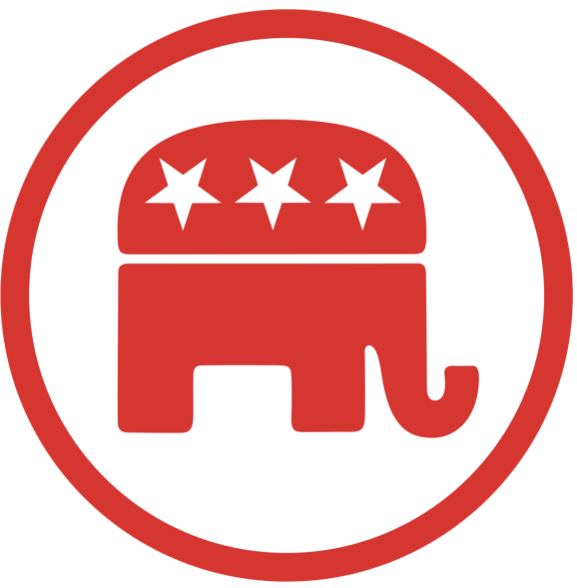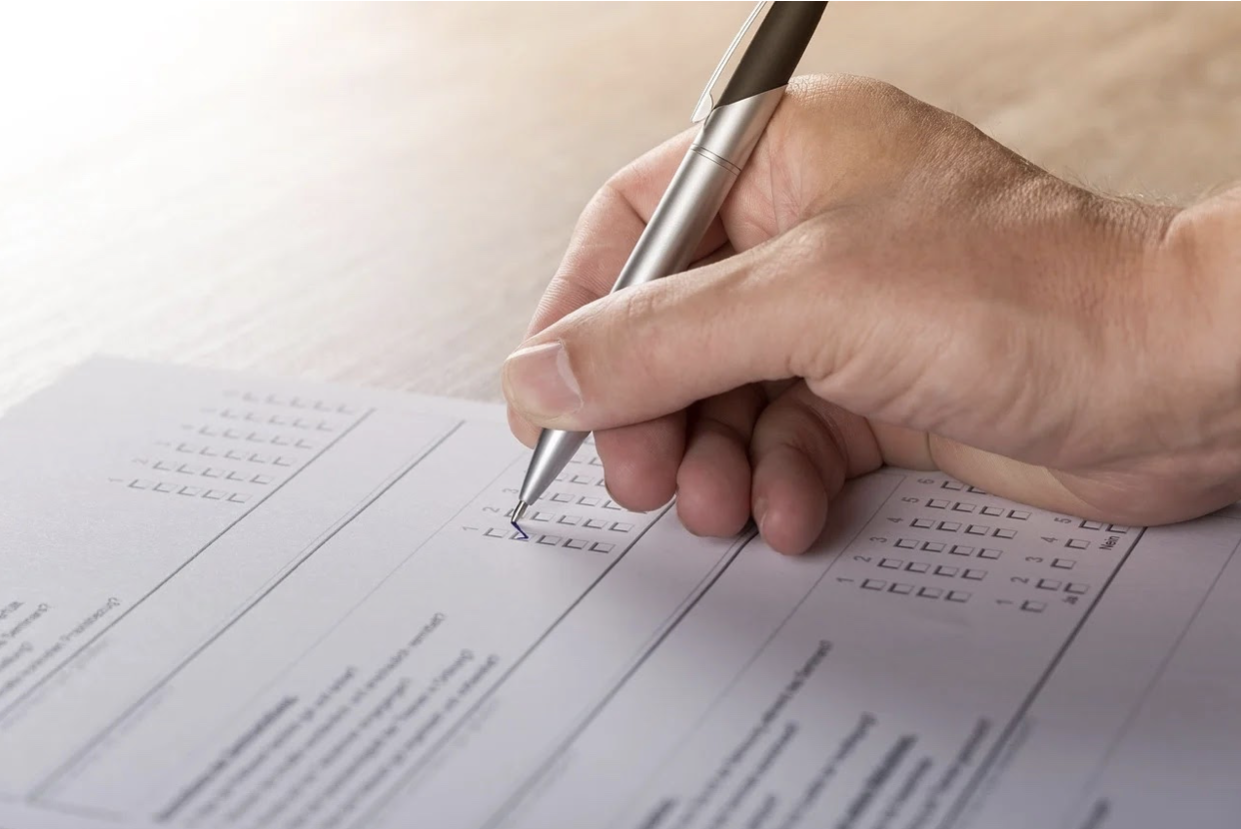<< Hide Menu
Unit 4 Overview: American Political Ideologies and Beliefs
6 min read•june 18, 2024
Isabela Padilha
VladimirGenkovski
Isabela Padilha
VladimirGenkovski
Political ideology refers to the set of ideas, beliefs, and values that individuals have about how government should work and the kinds of policies that government should implement. Each person has a set of personal political values that shape their political ideology. These values are developed based on the environments in which they have grown up and lived. This unit addresses major political ideologies in the United States, the way individuals develop their own ideologies, and the role of political parties in influencing ideology.
There are two major political ideologies in the United States: liberalism and conservativism.

Image from wikipedia.org
Liberalism, typically associated with the Democratic Party, points to the importance of government regulation of the economy to protect the rights of individuals and to control some of the drawbacks of free-market capitalism. Policies like minimum wage, environmental protection, and worker protections reflect liberal economic policies. Liberalism also points to an emphasis on policies that promote social equality and justice, opposing government interference in private lives (enabling individuals to engage in marriage with the partner of their choosing, seek out an abortion, etc.)

Image from wikipedia.org
Conservativism, typically associated with the Republican Party🐘, advocates for less government regulation of the economy and argues for a more laissez-faire, free-market capitalism approach to economic issues. Conservatism also tends to emphasize certian family and societal values with regards to social issues, promoting government interference in private lives in order to do so (placing restrictions on marriage rights, abortion, etc.)
There are third parties, however, that also seek to gain power in the United States. The Libertarian Party focused on a libertarian political ideology, is the largest of these third parties. Libertarians argue for a significantly limited government, seeking little government intervention and regulation of both economic and social issues.
Political Culture and Socialization
American political culture refers to the broader ideas that guide thinking about the role of government in the United States. Some major elements of American political culture include the importance of liberty and individual freedoms, the concept of equality for all, an emphasis on individualism and the importance of individual decision-making, the significance of the rule of law, and the idea that laws should be applied equally and fairly to all as well as the focus on a limited government that should not interfere with individual rights.
Political socialization refers to the process by which people develop their political beliefs, values, attitudes, and ideology. Political socialization is an ongoing process but is largely the product of a few major agents of socialization. These include family, which is one of the foremost agents of socialization as people usually maintain the same political ideology as their parents; school, where students are exposed to core values; peers, who can shape the beliefs of those around them; and media, which provides a lens through which people see society.
There are many factors that can cause an individual to shift in their political ideology, including generational effects that take place when an entire generation goes through a major event, like a war, pandemic, or terrorist attack, that shapes their thinking on politics, and lifecycle effects that cause a shift in ideology as a person moves through different stages of their life with shifting priorities.
Public Opinion Polling

Image from pixabay.com
Public Opinion, measured by surveys, reveals the political beliefs of a subset of the population about a certain issue. A number of characteristics can influence the validity of a poll and lead to more reliable results.
Ensuring that public opinion polls were conducted with random sampling, for example, ensures that all individuals had an equal chance of being selected to participate and can reduce the bias of results. Random digit dialing is a popular method of ensuring a random sample, with a computer dialing a random string of digits to ensure that the selection of participants is truly randomized.
Some pollsters opt for quota samples, which set parameters for the inclusion of individuals from specific demographic groups. A pollster measuring a population composed of 60% underclassmen and 40% upperclassmen, for example, might choose a quota sample to ensure that their respondents match that percentage breakdown.
Additionally, the larger the polling sample size, the more reliable the poll will be, resulting in a smaller margin of error. Margin of error tells us the degree of certainty in the results of the poll – providing a percentage +/- that the result may be off.
Finally, the wording of questions must be clear and free from bias to result in a more accurate polling result.
Fiscal Policy
Economic policy is divided into two major categories – fiscal policy, which addresses the way taxation policy is used to manage the economy, and monetary policy, which addresses the way the government regulates the money supply and interest rates through the Federal Reserve.
The debate between Supply-Side Economics, which argues that cutting taxes on the wealthy will result in trickle-down effects that benefit the entire economy, and Keynesian Economics, which argues that increasing government spending to stimulate the economy in times of economic downturn, exemplifies key ideological differences in the area of fiscal policy. The Democratic Party generally favors Keynesian Economics, while the Republican Party generally favors Supply-Side Economics.
-------
Key Ideas
- There are two main political ideologies in the United States today: liberalism and conservatism.
- These ideologies mainly help build the bipartisan - or two-party system - in the country.
- They align with the existent and dominant parties today. - Generally, the Democratic Party is more liberal, and the Republican Party is more conservative. 🎥 Watch: AP GOPO - Political Parties and Their Platforms
Important Vocab
- liberal: a political ideology characterized by support for a strong role for government in addressing social and economic issues, as well as a belief in individual rights and freedoms.
- conservative: a political ideology characterized by support for limited government intervention in social and economic affairs, a belief in individual responsibility, and a preference for traditional social values.
- moderate: a political ideology characterized by a balance between liberal and conservative beliefs, with a focus on pragmatism and compromise.
- Social Security: a government program in the United States designed to provide financial support to older Americans, as well as to disabled and surviving dependents.
- Medicaid: a government-funded health insurance program for individuals and families with low incomes in the United States.
- Medicare: a federal health insurance program in the United States for people who are 65 or older or who have certain disabilities.
- welfare: a range of government programs designed to provide financial support to individuals and families in need.
- political socialization: the process through which individuals learn about political beliefs and values from family, friends, school, media, and other sources.
- Keynesian economics: an economic theory named after economist John Maynard Keynes, which argues that government intervention in the economy, through spending and tax policies, can help to promote economic growth and stability.
- supply-side economics: an economic theory that argues that economic growth can be stimulated by reducing taxes and regulations on businesses, thus increasing incentives for companies to invest and expand.
- political platform: a set of beliefs, goals, and positions on key political issues that a political party or candidate is running on.
- polling: the process of surveying public opinion by asking a sample of individuals about their beliefs and attitudes on political issues.
🎥 Watch: AP GOPO - Economic Ideology

© 2024 Fiveable Inc. All rights reserved.